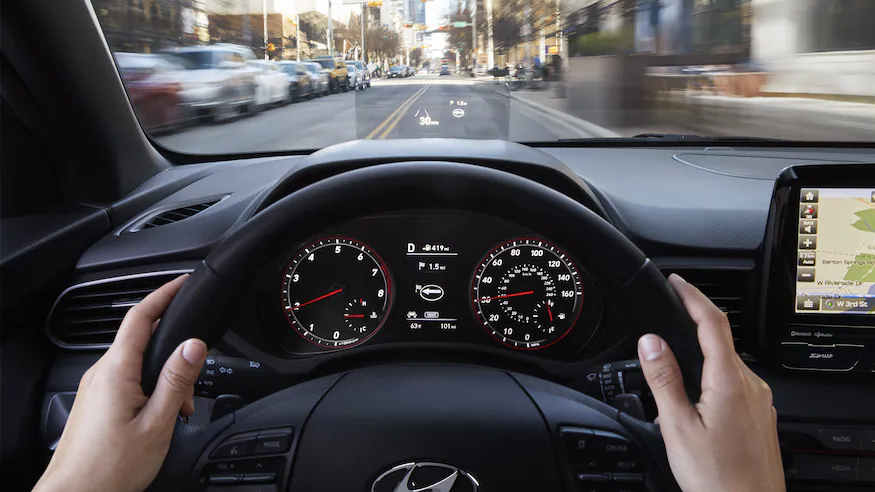As someone who used to commute by car every day, I know firsthand how frustrating and time-consuming it can be. However, recent studies have shown that car commuting actually has several benefits that are often overlooked. In this article, I will explore some of the car commuting benefits and why it may not be as bad as we once thought.
One of the biggest benefits of car commuting is that it can be a time to decompress and mentally prepare for the day ahead. While sitting in traffic may seem like a waste of time, it can actually be a valuable opportunity to listen to music, catch up on news or podcasts, or simply enjoy some quiet time before arriving at work. Additionally, car commuting can provide a sense of independence and control over one’s schedule, as opposed to relying on public transportation or carpooling.
Another benefit of car commuting is the potential for increased job opportunities. Living in a suburban or rural area may limit job opportunities, but having a car can allow for a wider range of job options since transportation is not a limiting factor. Additionally, having a car can allow for more flexibility in terms of work hours and location, as opposed to being tied to a specific public transportation schedule.
Table of Contents
Financial Benefits of Car Commuting
As an ex car commuter, I have found that there are several financial benefits to driving to work. In this section, I will discuss two main categories of financial benefits: tax benefits and cost savings.
Tax Benefits
One of the biggest advantages of car commuting is the tax benefits. According to the IRS, qualified parking and transportation benefits are not included in an employee’s gross income. This means that as an employee, I can receive up to a certain amount of transportation benefits each month without having to pay taxes on that income. This can result in significant savings for me over the course of a year.
In addition, as an employer, my company can save money on payroll taxes by offering commuter benefits to its employees. By allowing employees to set aside a certain amount of their pre-tax income each month to pay for commuting expenses, my employer can reduce its payroll taxes. This can result in savings for both the company and its employees.
Cost Savings
Another financial benefit of car commuting is cost savings. While it’s true that driving a car can be expensive, there are several ways to save money on commuting costs. For example, carpooling with coworkers can reduce the cost of gas and parking. In addition, by driving a fuel-efficient vehicle, I can save money on gas over time.
Furthermore, by taking advantage of commuter benefits, I can save money on commuting expenses. Commuter benefits can include transit passes, qualified transportation fringe benefits, and more. By using these benefits to pay for my commuting expenses, I can save money each month.
Overall, there are many financial benefits to car commuting. By taking advantage of tax benefits and cost savings, I can save money on my daily commute and reduce my overall expenses.
Time Efficiency
When it comes to car commuting, time efficiency is a major factor that can make or break the experience. Here are some tips to make the most of your time spent commuting by car:
Shift your work schedule: If possible, try to shift your work schedule so that you can avoid peak traffic hours. For instance, if the commute is worst at 7-9am and 4-6pm, you could leave around 6am and come home at 3pm, or leave at 9am and come home after 6pm to miss rush hour. This can save you a lot of time and frustration on the road.
Use GPS to optimize your commute: Many GPS apps and devices can help you find the fastest route to your destination, taking into account traffic, accidents, and other factors. By using GPS, you can avoid getting stuck in traffic and arrive at your destination more quickly.
Make use of your time on the road: If you’re stuck in traffic or have a long commute, consider using that time productively. You could listen to audiobooks or podcasts, catch up on work emails, or even learn a new language with language learning apps. By making use of your time on the road, you can make your commute more enjoyable and productive.
Overall, by taking steps to optimize your commute and make use of your time on the road, you can make your car commuting experience more efficient and enjoyable.
Convenience and Flexibility

As someone who commutes to work, I understand the importance of convenience and flexibility when it comes to transportation. It’s essential to have a reliable mode of transportation that can get you to your destination on time without any hassle. In this section, I’ll discuss the benefits of car commuting and how it provides convenience and flexibility to commuters.
One of the significant advantages of car commuting is the convenience it provides. With a personal vehicle, you have the freedom to choose your route and schedule. You don’t have to worry about catching a bus or a train on time, which can be stressful and time-consuming. You can leave your home at your convenience and arrive at your destination on time without any delays. Additionally, you can make stops along the way, such as running errands or dropping off your kids at school, without worrying about missing your train or bus.
Another benefit of car commuting is the flexibility it provides. With remote work becoming more common, having a personal vehicle allows you to work from anywhere. You can easily drive to a coffee shop or a co-working space to work without worrying about public transportation schedules. Additionally, having a car gives you the flexibility to change your schedule or route if needed. For example, if there’s an accident or road closure on your usual route, you can quickly change your route and avoid delays.
Parking is also an essential factor when it comes to car commuting. With a personal vehicle, you can park at your destination without worrying about finding a spot or paying for parking. Additionally, some employers offer parking benefits to their employees, which can save you money on parking fees.
While ride-hailing services like Lyft and Uber provide convenience and flexibility, they can also be expensive, especially for daily commutes. Mass transit, such as buses and trains, can be a cost-effective option for commuting, but they may not provide the same level of convenience and flexibility as a personal vehicle.
In summary, car commuting provides convenience and flexibility to commuters. With a personal vehicle, you have the freedom to choose your route and schedule, work from anywhere, and park at your destination without any hassle. While there are other transportation options available, having a personal vehicle can be a reliable and convenient option for daily commutes.
Less Exposure to Air Pollution and Noise
According to Enembe et al, active- and public-transport commuters often face a higher risk of air pollution and noise exposure compared to private car users. This was evidenced in a study conducted in Thessaloniki. The research highlighted significant disparities in Particulate Matter (PM) and black carbon concentrations across different modes of transport. Specifically, cyclists and bus users in cities like Thessaloniki are subjected to increased exposure to these harmful pollutants.
Such exposure not only poses immediate health risks but can also result in chronic respiratory and cardiovascular diseases upon prolonged contact. Moreover, the heightened noise levels that cyclists encounter can lead to stress and potential hearing issues. If these factors are not carefully considered, cities might inadvertently promote transportation methods that compromise the health of their residents, undermining the intended benefits of decreased car usage
Impact on Employee Morale
Commuting to work can have a significant impact on employee morale. A long and stressful commute can leave employees feeling exhausted and frustrated before they even arrive at work. This can lead to decreased job satisfaction, lower productivity, and even increased absenteeism.
On the other hand, offering commuter benefits can be a great way to boost employee morale. By providing employees with options for alternative modes of transportation, such as public transit or carpooling, employers can help reduce the stress and frustration associated with commuting.
In addition to reducing stress, offering commuter benefits can also show employees that their employer values their well-being and is committed to creating a positive work environment. This can lead to increased loyalty and job satisfaction, as well as improved employee retention rates.
It’s important to note that the impact of commuting on employee morale can vary depending on a number of factors, such as the length of the commute, the mode of transportation, and the individual preferences and needs of each employee. As such, it’s important for employers to offer a range of commuter benefits to ensure that all employees have access to options that work for them.
Overall, offering commuter benefits can be a great way to improve employee morale and create a more positive work environment. By reducing stress and showing employees that their well-being is a priority, employers can help create a happier, more productive workforce.
Conclusion
In conclusion, car commuting has both advantages and disadvantages. It is a convenient and flexible mode of transportation that allows individuals to travel to their desired location at their own pace. However, it also has negative impacts on both physical and mental health.
Overall, it is important to consider the pros and cons of car commuting and actively seek out ways to incorporate active commuting into daily routines. By doing so, individuals can improve their physical and mental health while also reducing their carbon footprint.
FAQ
Is a commuter benefit worth it?
Absolutely! Commuter benefits can provide significant savings for both employees and employers. For employees, they allow for pre-tax deductions from their paycheck, reducing their taxable income and ultimately saving them money on regular commuting costs. For employers, offering commuter benefits can lead to payroll tax savings, improved employee retention, and an enhanced benefits package that makes the company more attractive to potential hires.
What are the commuter benefits for 2023?
Commuter benefits typically include pre-tax deductions for transit passes, vanpooling, and parking. The exact monthly limits are set by the IRS and can change from year to year, adjusting for inflation and other factors. In previous years, the IRS set separate limits for transit/vanpooling and parking. To get the exact figures for 2023, you’d need to check the IRS’s official announcement or consult with a tax professional.
What are qualified commuting expenses?
Qualified commuting expenses are costs associated with an employee’s travel between their home and workplace. This includes:
Public Transportation: Bus, train, subway, and ferry fares.
Vanpooling: Costs associated with commuter highway vehicles that seat at least six adults (excluding the driver) and where at least 80% of the mileage is for transporting employees between their homes and workplace.
Parking: Expenses for parking your car near your place of work or at a location from where you continue your commute via public transport.
It’s important to note that costs related to tolls, fuel for private car commuting, or any non-work-related travel are generally not considered qualified commuting expenses for pre-tax commuter benefits.








